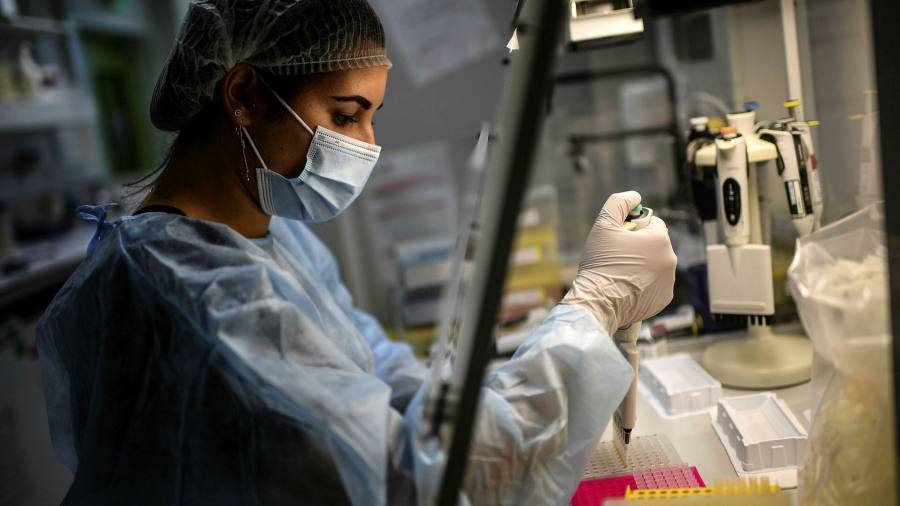[ad_1]
The chief executive of the world’s largest genomic sequencing technology company has called for global co-operation to track new virus variants, arguing it is essential to ensure that Covid-19 vaccines, drugs, and diagnostics do not fail in the face of new strains.Â
Francis De Souza, who leads the Californian company Illumina, said governments and companies should create a “global surveillance network†to monitor and share information on the virus, just as many have tried to do with threats from computer viruses.Â
“Every time there’s a new strain that emerges, the vaccine companies need to get the sequence right away and run the tests to see if the vaccine still works,†he told the Financial Times, adding that drugmakers, such as those making antibody treatments, and manufacturers of Covid-19 PCR tests, need to undergo the same process.
“All our tools depend on the genomic profile of the virus,†he said.
Illumina, whose shares have soared 60 per cent in the past year, has been expanding its capacity to build the sequencers and deliver the materials they need to run. The San Diego-based company has about 70 per cent of the sequencing market, according to Morningstar. In 2021, it forecasts revenue growth of 17 per cent to 20 per cent.Â
Sequencers take a long strand of DNA, chop it up, and read each piece in parallel, before using software to put the pieces back together again. The technology was first developed 20 years ago, but until last year was rarely used in tracking infectious diseases.
The first genetic sequence of the virus behind Covid-19 was done on an Illumina machine in China in mid-January 2020, far more quickly than the months it took to sequence the Ebola virus in 2014.Â
The UK has played a “fantastic leadership roleâ€, recognising the value of sequencing the Sars-Cov-2 virus, De Souza said. It sequences about 10 per cent of all positive cases.
But other countries including the US are trying to catch up, investing in expanding their sequencing capabilities in just the last couple of months, as troublesome variants have emerged.Â
De Souza said defence departments around the world are now waking up to the importance of sequencing to detect other biological threats, concerned that they were caught unaware when coronavirus first entered their country.Â
“We have an Air Force and in the US, we have a Space Force and we have a cyber force in the UK. I think we need a Bio Force,†he said.Â
As well as sequencing samples from infected individuals, a global surveillance network could harvest viruses from sewage, the surfaces of hospitals, and livestock markets, he said. It would need to share the data in a format that can be used by everyone — and ensure that countries do not get punished for having more robust surveillance systems.Â
“You will need policies to make sure that if a country reports an outbreak, they don’t, on their own, suffer the economic consequences, so they are just shut off from the rest of the world,†he said.Â
[ad_2]
Source link






